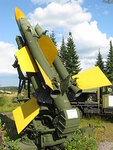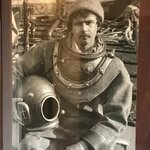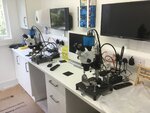It’s really interesting to know that the cross section of UK beekeepers is so diverse in nature.
Policemen, Engineers, Military Service personnel, Therapists, Joiners, Immigration officers, Horticulturalists, Cyber security trainer, Veterinary surgeons, Software developer (all either Fully active, Ret’d, semi Ret’d etc) to name but just a few illustrious disciplines on here.
So…How do I precis nearly 50+ years in industry? Where do I fit? What classification would I come under? Mmmmmm....Well, let’s find out shall we fellow beeks? I have the time to write it, if you have the time to read it…..
But first a mug of NATO standard to get the grey matter into gear…….
A chequered past maybe???……
Left school at 15 and immediately got a job as an apprentice in telecom. engineering with what was back then the Post Office (Now BT/Openreach etc). Continued with my educational studies (part of the deal back then) to gain my HND in Mech Eng. which I only just scraped through (due in part to me thoroughly indulging myself with fine Welsh cwrw and, more importantly, the very, very pretty Welsh merched!).
During this time, I was seconded into the MOD at the RAE Aberporth missile testing site (now Quinetic). That was an interesting time watching them fire bloody big Bloodhound and Thunderbird missiles (and lots of other smaller ones) at drones flying over Cardigan Bay. Yep....even back in the late '60's /early 70's the MOD was using RC drones.
A Bloodhound.....
And a Thunderbird....
Onwards.........
At 26 (now married with 2 kids) I began to get ‘itchy feet’ and wanted a new challenge (Rocky always loves a challenge!).
I’d started amateur scuba diving at a very early age (14) after being mentored by a close family friend (who was an ex Para retired out of service due to injury). At the time the Gov’t was offering free commercial diving courses and it sparked my imagination. The offshore oil/gas industry was desperate for fully trained divers as they were either killing or injuring more than the number of new guys coming through. A typical case of open another box of divers cos this one's dead.(Mmmm….me thought, chance to make some good bucks here!!)
So, in January ‘76 I toddled off to Fort Bill (William) and did my 3 months extremely intensive commercial diver training in the shadow of the snow-covered Ben (Nevis). To say that Loch Linnie was cold was a real understatement with a number of guys dropping out of the course due to the extremely cold and hostile water conditions.
My Seibe Gorman standard diving hard hat (all still in working order)
Me in my Diving heyday.....
Spent the next 8 years or so working in some of the offshore oil and gas hotspots of the day which, apart from all of the North Sea (from the southern sector offshore Bacton/Easington to as far north as a tad below the 62nd parallel in the Norwegian sea) included the Persian Gulf and Nigeria (both offshore and swamp diving) etc. I have been lucky as I have worked on some of the biggest and best installations/engineering projects in the world at that time, together of course with some of the worst (The ‘PIPER ALPHA’ springs immediately to mind as being the worst installation in the North Sea that I ever worked on - before it blew up of course. (But not on my shift!!).
Due to a shortage of personnel with the right skill set (and the money being exceptional of course!). I moved into Project Engineering / Project Management (Diving and ROV ops) which I did for a further 9+ years. I was predominantly based in the great granite city (Aberdeen) but also had various shorter-term trouble shooting excursions abroad (Again, mostly the Persian Gulf and Nigeria). Loads of exciting private chopper flights and great hotels (Never ever the best though!!). Lots and lots of pretty girls and the air hostesses at the time were always very accommodating (With plenty of free drinks on the long flights – What else were you thinking?
By this time the bank balance was brilliant but the price I paid in stress related and matrimonial issues took a heavy toll. At the time (’86 to ’95) it was such a fast paced and demanding work environment to be involved in. I decided to quit whilst I was ahead (If I hadn’t, I would already be dead and would be writing this from my coffin – metaphorically speaking of course). So, I moved back home to west Wales where I'd always kept a house and started looking for new projects.
New projects (Bees included)......
Whilst seeking out new opportunities a close friend intro’d me to the art of beekeeping. Yep….you’ve guessed it!! It was all downhill from here!!
Started off with 2 colonies which very quickly went to 20+. All was going well until they got hit with the dreaded AFB which resulted in me having to totally destroy all the colonies and boxes etc. The older guys on here may well know the score….. Last thing in the evening when all flying has ceased, I closed in all the boxes, took the roof off quietly and poured petrol in through the hole in the crown board. At the time this was the norm and was 100% totally overseen by the regional Bee Inspector. Everything had to be totally destroyed. Once done, I dug a great big hole, put all the now dead bees together with all the hive hardware into the hole. Stood well back and threw in a match. Whooosh!! All went up in the ensuing fireball. After the fire had died back, I infilled and levelled off said grave. My reaction???? Totally, F*****g gutted to the point of tears.
It’s a strange thing but it was only last year that I found out who was responsible for bringing the AFB infected colonies into the area. He is, of course, now long gone but at the time if I’d met up with him??? God only knows what I would have done to the B*****d.
I restarted up a few years later after the AFB outbreak was totally eradicated. I don’t know what it is about bees but once you’ve kept them, they seem to keep calling you back like the ‘sirens of the sea’. Constantly calling you back with an incessant buzzing in your head. Perhaps when you get stung many times, they leave some strange chemical in your body that slowly migrates to your brain!
So…..bringing things up to the present day……
Been building up stocks steadily (circa 150 at present with the target for next year being 200+) and improving my local Welsh mongrels at the same time using open mating. I’ve been using modified Cloake boards with dedicated/modified queen builder boxes and floors etc.
I’m not a great fan of open mating if you want to seriously consider improving your own strains of bees. Simply no control of the drones. End of. The only, and I repeat ONLY method of guaranteeing mating is to use II. (Unless of course you have a private/isolated island like Keld Brandstrup). However, that’s another part of the story.
Just over 2 years ago I ended up having a triple heart bypass which I must admit has set me back a couple of years. However, I’m through the worst now and back on the road so to speak. Next year I’ll be using II to mate my Welsh mongrels and also Buckfast using island mated queens supplied by Keld. I’ll be using these to improve my own stocks and will also be selling them on the open market. Watch this space for more details if all goes to plan.
The II lab has 2 identical stations. One is set up for drone sperm extraction and the other for the insemination of the queens. I find this method easier than having the 2 units being used multi-functionally and constantly having to change over settings etc. The II equipment per se was supplied and set up by Mike Collier. (For those who don’t know Mike simply google ‘Michael Collier bees’.
Here’s a pic for you…..
The II lab.
I won’t say that queen rearing has been an easy ride. Far from it. I’ve had an awful lot of failures and c**k ups over the years.
Well….. I did mention earlier that the Rockingod loves a challenge!!
You can tell that it's peeing down with rain at the moment. Nothing better to do than write stories on the forum....
Hope the read was entertaining for you all and I thank my God for the ‘Word’ auto correct function!!………























































